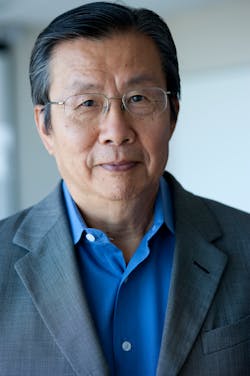Business Forum: 'Culture' isn’t just corporate when it comes to business

I was recently asked to speak at a Photonics Society of Chinese-Americans (PSC) meeting at OFC on entrepreneurship, how to be successful on the job, and how to get into mainstream America. Given that I have covered the first two topics here in the past, I would like to share my thoughts on the last topic, which may be summed up as “assimilation.”
The usual questions I get from an immigrant audience on this issue are: How do you deal with biases? How can we improve our communication skills? How do we overcome our culture of being too reserved and too passive, keeping to ourselves? I personally have not experienced what might be considered outright discrimination, but I also accept the reality that some people in isolated parts of the country are uncomfortable with people who are different from them. So I focus on the big picture to avoid reaching the wrong conclusion based on generalization, or to avoid focusing on specific instances that would cause me to miss real issues. I also limit my comments to adjusting our own attitudes and behavior to avoid letting perception taint our judgment, and to modify our own behavior since we have no control over what others do. The main points I made are as follows.
Take pride in your cultural heritage and also be sensitized to the prevailing cultural norm to act “local.” You won’t have the self-confidence derived from a positive self-image unless you are proud of who you are and where you came from. You can develop relationships to quickly learn what people do and how things work, and engage a mentor to determine how decisions are made in your company. Always abide by the golden rule; treat people fairly and they are likely to respond similarly.
Think long term, even ahead to multiple generations. I was very touched and inspired by the comments made by the Honorable Gary Locke, the former Secretary of Commerce who is now US Ambassador to China. He said it took the Locke family 100 years to move one mile from the house where his immigrant grandfather toiled as a house servant for the Washington governor’s mansion. That taught him respect for family, education, and hard work. To this day, he is a humble man! We have to accept the truth behind the saying that Rome was not built in a day. Realistically, it may take several generations to gain the social status we want. It is up to us to pass on to the next generation our value system, the lessons we learn the hard way, and the relationships and reputations we are able to develop that will enable them to start at a higher platform.
Focus on becoming really good at what you do. In the final analysis, our social system operates on the basis of meritocracy. All the reasons for bias go away out of necessity when you are indispensable on the job. Be helpful to those around you; you will sooner or later earn the recognition that establishes your leadership position.
Broaden your reach. How far you go depends on what you know and also who you know. Volunteering in your community and with professional societies enables you to meet people outside of your small circle, providing you a broader perspective and higher aspirations; your expanding Rolodex may also bring you opportunities.
Hone your communications skills. I was being somewhat tongue-in-cheek on this one by recommending an exercise in discipline by shortening the first draft of your e-mails by at least a factor of two. Not only have my writing skills improved as a result of writing my book but the ability to express myself succinctly also improved in the process. Successful individuals are often persons of few words, but they are able to home in on the real issues and express their opinions clearly with few words. Imagine the impact you can make by letting others speak and then adding a few non-obvious, insightful concluding remarks—even if you speak with an accent!
About the Author
Milton Chang
MILTON CHANG of Incubic Management was president of Newport and New Focus. He is currently director of mBio Diagnostics and Aurrion; a trustee of Caltech; a member of the SEC Advisory Committee on Small and Emerging Companies; and serves on advisory boards and mentors entrepreneurs. Chang is a Fellow of IEEE, OSA, and LIA. Direct your business, management, and career questions to him at [email protected], and check out his book Toward Entrepreneurship at www.miltonchang.com.
